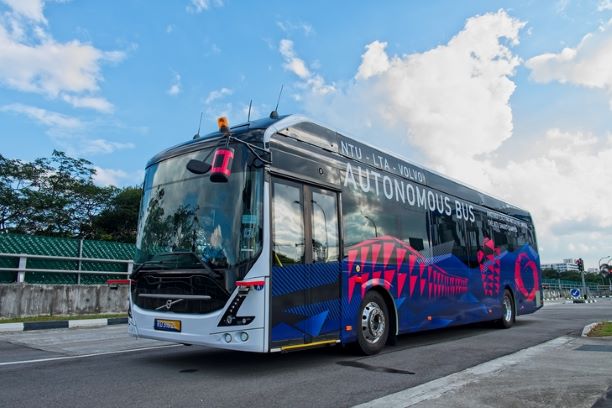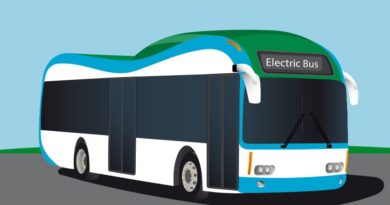Volvo & NTU Launch Autonomous Electric Bus in Singapore

The Nanyang Technological University (NTU) and Volvo Buses on Mar 5 launched a 12-meter autonomous electric bus in Singapore, a world first according to them.
The single-deck Volvo 7900 Electric bus, which can fit about 80 people, has gone through multiple tests at the Centre of Excellence for Testing and Research of Autonomous Vehicles – NTU (Cetran), and is now ready for tests in actual traffic conditions.
The launch comes as part of a development programme between the two, under NTU’s partnership with the Land Transport Authority (LTA) to develop and conduct autonomous vehicle bus trials for fixed routes and scheduled services.
At the unveiling of the bus at Cetran, NTU president Subra Suresh said: “This fully autonomous electric bus will play a role in shaping the future of public transportation that is safe, efficient, reliable and comfortable for commuters.
“This research project not only involves cutting-edge science, technology and artificial intelligence, but is also an excellent example of close partnership among academia, industry and government agencies in translating basic research into products and services for the benefit of Singapore and beyond.”
The autonomous bus is able to travel 25km on a full charge. Through a 300kW fast-charge system from engineering giant ABB, the bus can be charged to full capacity within six minutes.
The single-deck Volvo 7900 Electric bus, which has 36 seats, is a zero-emissions vehicle and requires 80 percent less energy than an equivalent-sized diesel bus, according to a news release announcing the launch.
It is equipped with numerous sensors and navigation controls that are managed by an artificial intelligence (AI) system. The bus is equipped with Global Positioning System antennas, lidar (light detection and ranging) sensors and stereo-vision cameras that capture images in 3D and an advanced global navigation satellite system which uses multiple data sources to give location accuracy of up to 1cm.
There are two such buses, which were provided by Volvo last year as part of a partnership with NTU.
The on-the-road trials will start later this year, with a bus to be tested at the university without any passenger pick-up. The other bus will be trialed at an SMRT depot to check if it can navigate itself into washing bays and park at charging stations.
The NTU-Volvo team hopes to be one of the successful tenderers for the Government’s plans to have autonomous vehicles in Punggol, Tengah and the Jurong Innovation District from 2022 for commuter use. Prof Subodh said the team is excited about the potential of the NTU-developed platform. “Potentially, it could also be used for transportation on the sea. This is a platform that will catalyse other autonomous applications.”




